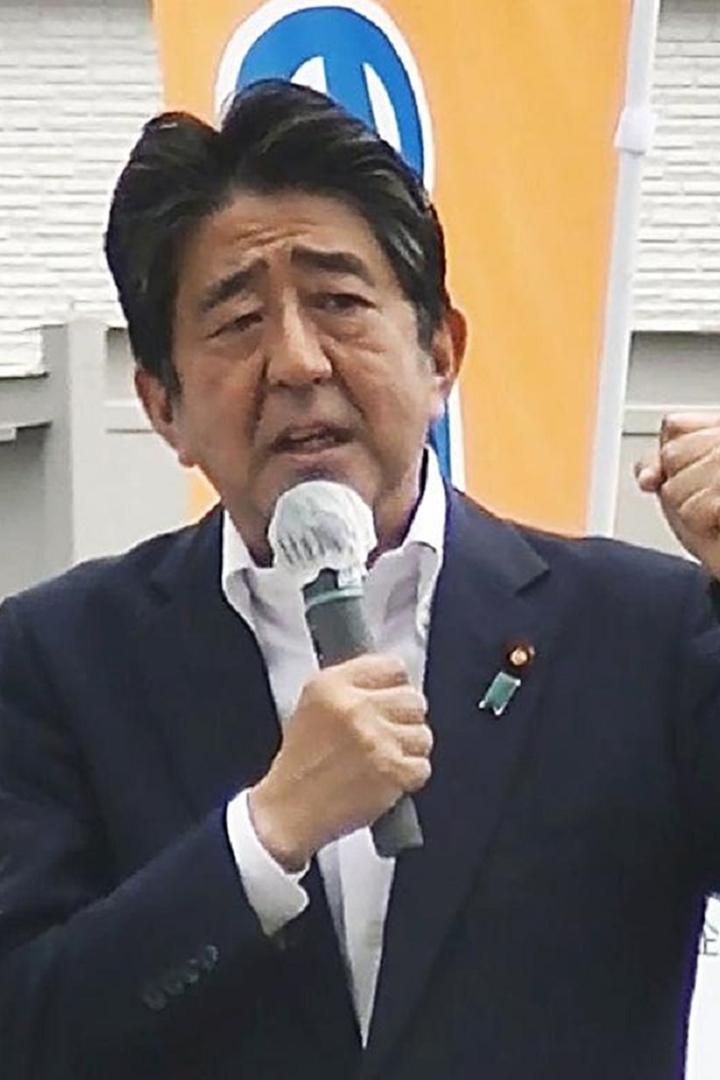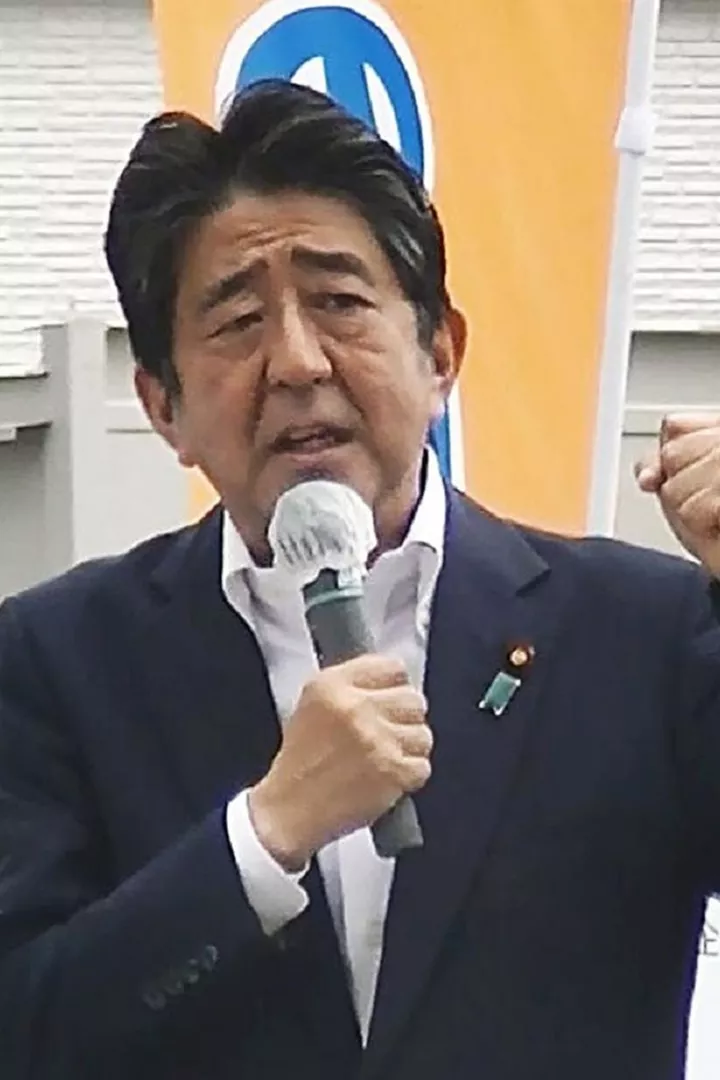

A timeline of the career of former Japanese PM Shinzo Abe


Abe is born in Tokyo
Sept. 21, 1954:


1977: Graduates from Seikei University in Tokyo
with a degree in political science
(Shinzo Abe Right)


1982: Pursue new positions at the Foreign Ministry
And with the ruling Liberal Democratic Party.
Sept. 26, 2006: Abe becomes Japan’s prime minister for the first time
2013: Seeking to boost growth, Abe launches his “Abenomics” policies
2014-2020: Re-elected LDP leader
he serves two additional terms as prime minister for a total of four
2021: Despite leaving office, Abe shows he can still rile up Beijing
with comments on Taiwan
July 8, 2022: Abe is fatally shot
while giving a speech at a campaign event in the city of Nara.
The son of Shintaro Abe, who served as Japan’s foreign minister, and grandson of Nobusuke Kishi, a former prime minister.
After which he moves to the U.S. to study public policy at the University of Southern California for three semesters.
1993: First elected as a LDP legislator representing the southwestern prefecture of Yamaguchi.
Abe, already viewed as a conservative, becomes a member of and eventually leads the party’s largest faction, Seiwakai, that had once been headed by his father, who died in 1991.
Overseeing economic reforms while taking a hard line on North Korea and seeking to engage with South Korea and China.
2007: Following electoral defeats that saw the LDP lose control of the legislature for the first time in 52 years, Abe resigns as prime minister, citing health reasons.
Abe has been suffering from ulcerative colitis but was able to control it with medication.
Featuring easy lending and structural reforms.
Japan’s relations with China undergo a particularly rough patch but begin to improve after Abe meets with Chinese leader Xi Jinping at the APEC summit in Beijing.
uring which he develops close relations with then-president Donald Trump, holding summits and golfing together.
Aug. 28, 2020: Announces he will step down as prime minister, again citing health reasons, after his ulcerative colitis flares up again. By that point, Abe had already become Japan’s longest-serving prime minister.
In a speech, Abe warned that “military adventure would lead to economic suicide.”
Police arrest a male suspect but no motive was immediately known.